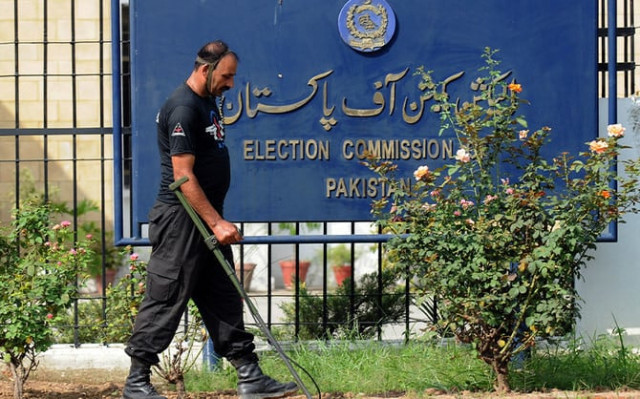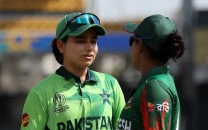PHC moved against its PTI polls order
ECP argues high court powers limited to 'territorial jurisdiction'

The Election Commission of Pakistan (ECP) lodged an intra-court appeal on Saturday challenging the Peshawar High Court’s (PHC) suspension of its ruling on the PTI’s internal polls and the revocation of the party's iconic electoral symbol, a cricket bat.
The ECP urged the appointment of a special two-member bench for an expedited hearing, citing the matter's significance to "national interest." On December 22, the ECP nullified the internal elections of the PTI, taking back the party's election symbol.
However, on December 26, the PHC single-member bench comprising Justice Kamran Hayat Miankhel, suspended the ECP’s decision, directing the commission to publish the PTI’s certificate on its website and restore its electoral symbol.
In its intra-court appeal, the ECP argued that the PHC verdict was against the law as well as the dictum laid down by the Supreme Court.
It contended that the Constitution “unambiguously” vested the powers and jurisdiction in the ECP to make “factual determinations” in connection with the subject matters of the writ petition.
The ECP in its plea argued that the high court’s powers were limited to its territorial jurisdiction, whereas the PTI’s electoral symbol was to be allotted across the country.
The commission added that on these grounds, the PHC’s order was beyond its “territorial jurisdiction”.
The ECP also maintained that the PHC had handed down the order without issuing notices to the commission as well as other respondents and without listening to their arguments,
The appeal maintained that under Article (3) 218 of the Constitution and the People's Act and other rules, it was the responsibility of the ECP to make all the necessary arrangements for fair polls in the country so that transparency could be maintained during electoral activities as well as voting.
It added that it was the commission’s duty to ensure that nobody was deprived of their rights and constitutional requirements were fulfilled.
Referring to several judgments of the Supreme Court, it argued that checking the nomination papers of the candidates, hearing their objections and finally conducting the voting in a transparent manner all came within the constitutional powers of the commission.
Similarly, the ECP contended that the commission had the authority to monitor election campaigns, rallies, processions as well as all related matters so as to prevent any kind of illegal practice and to fulfil the democratic requirement of conducting the polls in a fair manner.


















COMMENTS
Comments are moderated and generally will be posted if they are on-topic and not abusive.
For more information, please see our Comments FAQ